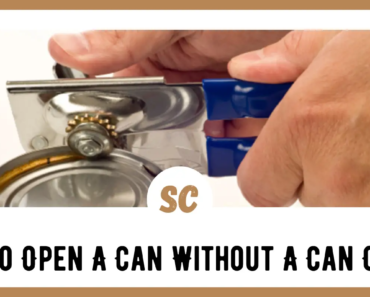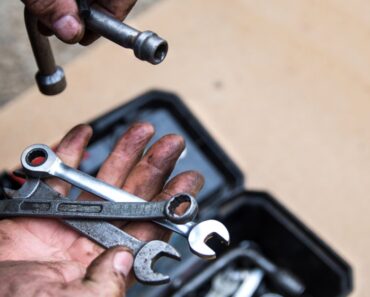I don’t care how prepared you are, you’re never prepared enough. I’ve been at this for years and I have a never-ending list of things that aren’t done yet. That’s’ partially because I’ve moved during that time and partially because I’m constantly seeing new things that I need to add. But even when it comes to the basics of prepping, I never really feel like I’m 100% there; you know what I mean?
That’s not a problem most of the time; it keeps me busy, constantly improving my preps. But that could change in an instant, should a disaster strike. When that happens, the project that we’re going to do aren’t going to mater, all that’s going to matter is what we’ve got done. I won’t be worried about that improvement I was going to make to my garden or the new gun I wanted to buy; all I’ll care about is what I have and whether it is working or not.
Regardless of what your state of preparedness is at any moment in time, you’re likely to feel it is inadequate when a disaster happens. Don’t feel bad about that, we all do. The question is… how are you going to react to those feelings of inadequacy? Are they going to drive you to do whatever you can to improve your state of readiness at the last minute or are you just going to throw in the towel?
Personally, I’m convinced that no matter how ready you are when a disaster is pending, there are things you should do to make sure as ready as you can possibly be. Even if you are well prepared for the disaster, it doesn’t hurt to take the available time to make a few last-minute additions.
These things should be written into your family’s disaster plan, with specific assignments made to get each task done. You don’t want to be wasting time, making work assignments when you know a disaster is on the way. Having this pre-planned can save valuable minutes, allowing you to get more done.
Communicate
Your first act has got to be to get in touch with your family and survival team (assuming you are part of one), letting them know about the pending disaster and that you’re putting your survival plan into effect. This has to include getting your family home, something that I’ve talked about elsewhere. You might also want to call extended family members, in other cities, so that they will know that you’re okay and on top of the situation.
Go to the Bank
All that plastic money we carry around becomes basically useless when the power goes out. While it might be convenient for everyday use, it’s certainly not the thing to have in your pocket during times of crisis. Good old cash is still pretty universally accepted and you don’t need electric power to process the transaction.
Keep in mind that any cash you have will only be usable for a limited amount of time in a true TEOTWAWKI event. It won’t take long for people to realize that cash is worthless without an entire supply chain in which to use it. So, don’t plan on hoarding it in that situation; plan on using it in the first few days. On the other hand, in the case of a natural disaster, that cash will be useful for making any emergency repairs that you need to.
Hit the Gas Station
Topping off your gas tank and any gas cans you have should be a high priority. Gas doesn’t store well, so few of us have much of it on hand. The problem though, is that it will probably take a lot of time. I live in a hurricane zone and the gas stations always have an hour-long line when a hurricane is heading our way. Even so, I’d task one driver to just get as much gas as possible. At the same time, I wouldn’t let buying gas keep me from getting other things done.
Even if you’re not stockpiling gasoline, it’s a good idea to have several spare gas cans in the garage or storage shed. That way, when you go to fill the tank, you can fill those as well, giving yourself more gas to use during and after the emergency. If you end up having to bug out, that gas will be especially valuable.
Fill Up on Water
I’m sure you’ve got water stockpiled for an emergency; but I’m also sure you don’t have enough. I’m not sure it is possible to stockpile enough water. Assing one person that’s staying at home for those last-minute preparations the job of topping off with as much water as possible. Fill the bathtubs and any containers you have. If your rain barrels aren’t full, fill them with the garden hose and if you have an above-ground swimming pool, make sure it’s filled as much as you can.
At the same time, I’d make sure that large containers of water, like those rain barrels and swimming pool have enough chlorine in them to keep the water safe. You might not be able to keep them well-chlorinated all the time, but starting out that way can eliminate one concern for the first few days.
Grab Some Last-minute Groceries
Even if you have a good stockpile already in place, it wouldn’t hurt to make a run to the grocery store, just to top off your pantry. There are always things we’re a bit short on, whether from our prepping stockpile or from our daily food stocks. In either case, it only makes sense to get what you can, while you can.
Avoid perishable foods, unless you know that you’re going to be eating them within the next few days, before they can spoil. You’re already going to have a problem dealing with the food that’s in the refrigerator and freezer, so there’s no sense giving yourself more problems to deal with. On the other hand, remember the great toilet paper shortage of 2020 and act accordingly.
Check Your Wood Pile
Granted, this might not be the best time to be cutting wood; but it might also be your last chance for a while. It’s better to makes sure that you have plenty of wood in the pile, rather than not checking and not having enough wood. Are there any trees in the neighborhood that you’ve targeted for cutting? Now might be the time to talk to those homeowners, before the tree falls on their home.
I keep track of all the trees for several blocks around our home, looking for signs of damage and limbs that might fall off in a storm. Cutting off those limbs is just being a good neighbor. They don’t need to know that I have use for them.
Hook Up and Test the Generator
I know that generators aren’t popular in the prepping community, mostly because they go through a lot of fuel. Nevertheless, I have two of them; my old standby and a bigger, newer one my wife bought me. While they wouldn’t be of much use during a long-term survival situation; they’re great for short-term ones. I use my generator mostly to keep the fridge going, so that I don’t have to worry about losing that food. Typically, I’ve got enough gasoline on hand to keep it running for a couple of weeks.
Generators can be a bit cantankerous, which is why I say to hook it up and test it. I’ve had more than one time when I needed a generator, where I had to spend time doing emergency repairs. The other important thing to do is to make sure that it is chained down to something, so that it can’t be stolen. Others will hear your generator running and someone may just decide they need it more than you.
The other thing I do with my generator is to put a charging station out by the street, so that neighbors can plug their phones in to charge. This isn’t a requirement, by any means; but it can foster good relations with your neighbors, at a time when those might be necessary.
Finalize Your Defenses
Different preppers go about home defense in different ways; many of which include barriers and/or fighting positions that can’t be left up all the time. Setting them up probably isn’t as high a priority as other things I’ve mentioned here; but you don’t want to ignore them either. Consider those preparations a second-stage prep, after taking care of the more important things.
Of course, the best defenses are the ones which don’t really look like they are there to be defenses. An obviously fortified home sends the message that you’ve got something to protect. That’s not a good message to send. Better to let everyone think you’re in as bad a shape as they are.
If you have the time, while running other errands, it might not hurt to pick up a few extra boxes of ammo, especially if you’re short in one caliber or another. Some say there’s no such thing as having too much ammo, and while I don’t totally agree with them, I want to make sure I don’t run out.







![[VIDEO] How to Build a DIY Water Catchment System [VIDEO] How to Build a DIY Water Catchment System](https://survivalcove.com/wp-content/uploads/2022/12/axarticle_edited-370x297.jpg)




















